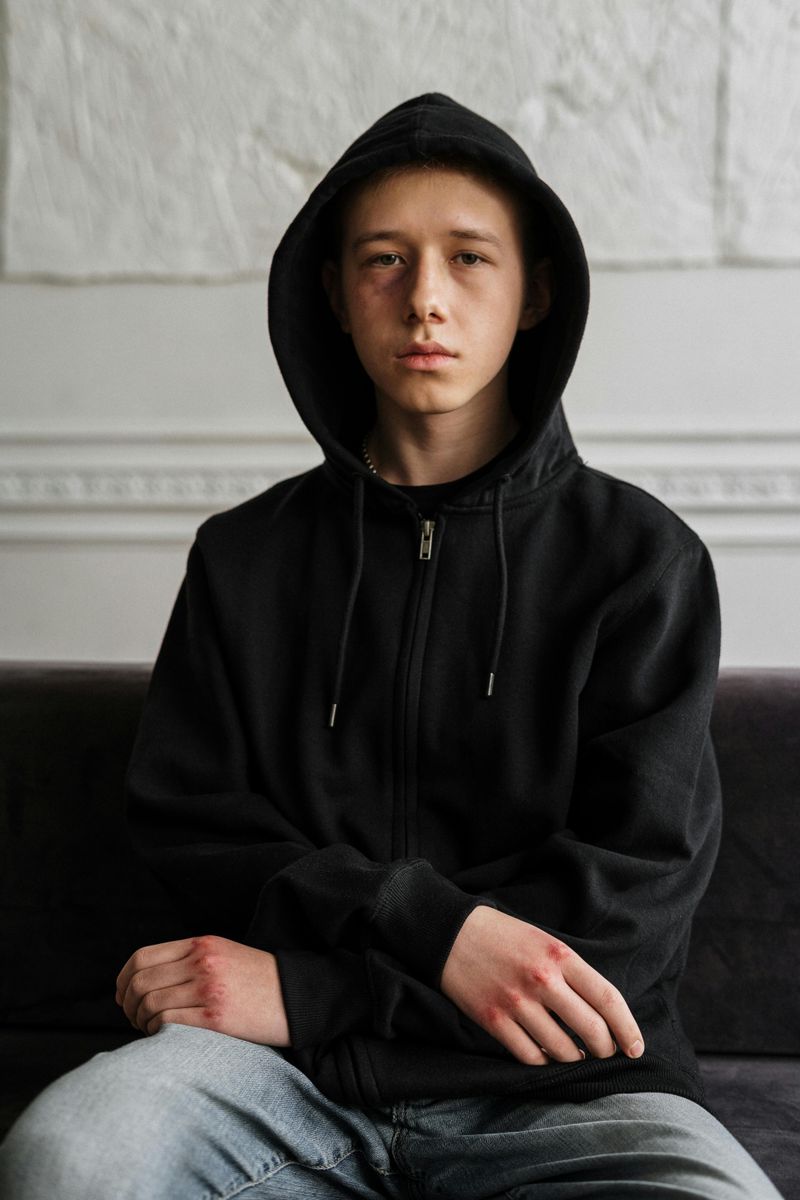We all carry a child within us – the part that experienced our early years and formed our core beliefs. When this inner child experiences trauma or neglect, the pain doesn’t simply disappear as we grow up. Instead, it manifests in our adult behaviors and relationships, often in ways we don’t recognize. Understanding these signs can be the first step toward healing wounds you might not even realize you’re carrying.
1. Fear of Abandonment Follows You Everywhere

That constant fear of being left behind isn’t just anxiety—it’s your inner child still grieving the moment someone important vanished. So you cling a little tighter, over-text, or spiral when plans shift.
This fear often shows up in romantic relationships but extends to friendships and work connections too. You might go to extreme lengths to please others, afraid they’ll leave if you don’t.
Adults with healed inner children can tolerate separation and trust that good people come back. Your abandonment fears are echoes from when you felt unsafe or unwanted.
2. People-Pleasing Has Become Your Default Mode

The need to make everyone happy at your own expense stems from early lessons that your needs didn’t matter. You say yes when you want to say no, apologize for things that aren’t your fault, and feel responsible for others’ emotions.
Your inner radar constantly scans for disapproval or displeasure in others. Small disagreements feel catastrophic because as a child, disapproval might have meant losing love or safety.
Healthy adults can set boundaries without crippling guilt. Your people-pleasing isn’t kindness – it’s a survival strategy you learned when your authentic self wasn’t accepted or valued.
3. Criticism Crushes You Completely

Even mild feedback feels like a devastating personal attack. Your heart races, shame floods your body, and you might either lash out defensively or completely shut down. This outsized reaction happens because criticism activates old wounds where you were made to feel fundamentally flawed.
You might obsess over small mistakes or perceived rejections for days or weeks. What looks like perfectionism often masks a desperate attempt to avoid the familiar pain of being found wanting.
Adults with healed inner children can separate constructive feedback from their self-worth. Your hypersensitivity signals unprocessed pain from times you weren’t allowed to be imperfect.
4. Difficulty Trusting Others Keeps You Isolated

Walls go up automatically when people try to get close. You scrutinize others’ words for hidden agendas and assume the worst intentions. This hypervigilance protected you as a child when trusting the wrong person meant getting hurt.
Relationships remain surface-level because deeper connection requires vulnerability you can’t risk. You might sabotage relationships just as they’re getting serious or find reasons why potential friends aren’t trustworthy.
Your inner child learned that people who should protect you might harm you instead. This lesson served you once but now prevents the very connections that could help you heal.
5. Emotional Numbness Replaces Genuine Feelings

Disconnection from your emotions isn’t strength – it’s a defense mechanism. You might pride yourself on being “logical” or “unemotional” when actually, you’ve learned to shut down feelings that were once too overwhelming or unsafe to express.
Friends comment that you seem detached during situations that would make most people emotional. You might experience physical symptoms like headaches or stomach problems instead of recognizing sadness or anger.
Children who are punished for emotional expression or overwhelmed by unregulated feelings learn to disconnect. Your emotional numbness protected you once but now prevents authentic connection with yourself and others.
6. Self-Sabotage Strikes When Success Is Near

Just as you approach a goal, you mysteriously derail your own progress. You might procrastinate on important projects, pick fights in otherwise happy relationships, or find other creative ways to snatch defeat from the jaws of victory.
This pattern stems from an inner child who learned that success might be dangerous. Perhaps achievement brought unwanted attention, impossible expectations, or jealousy from family members.
Your unconscious mind still believes the lies you internalized: that you don’t deserve good things or that staying small keeps you safe. Self-sabotage isn’t laziness or lack of willpower – it’s your wounded inner child trying to protect you in the only way it knows how.
7. Chronic Emptiness Haunts Your Quiet Moments

Even with achievements and a full life, there’s a quiet emptiness you can’t shake. You stay busy—work, relationships, scrolling—just to avoid sitting alone with the feeling that something’s still missing.
This void comes from early emotional neglect – times when your core needs for connection, attunement, and mirroring went unmet. No external achievement can fill this space because what was missing wasn’t things but rather presence and genuine connection.
Adults with healed inner children can be content in stillness. Your emptiness is your inner child still waiting for the emotional nourishment that should have come during your formative years.
8. Relationship Patterns Repeat Destructively

Despite promising yourself “never again,” you find yourself drawn to partners who recreate familiar dynamics from childhood. You might be attracted to emotional unavailability, choose people who need rescuing, or repeatedly end up with controlling personalities.
These patterns aren’t bad luck or poor judgment. Your brain seeks what’s familiar, even when it’s painful, because the known feels safer than the unknown.
Your inner child is trying to rewrite the story by recreating the original conditions, hoping for a different ending this time. Breaking these cycles requires recognizing that what feels like attraction might actually be your wounded inner child recognizing familiar territory.
9. Unexplained Shame Clouds Your Self-Image

A persistent sense of being fundamentally flawed or unworthy colors your experience regardless of external validation. You might feel like you’re constantly wearing a mask, terrified others will discover the “real you” underneath.
This toxic shame differs from healthy guilt about actions. It’s a core belief that something about your very being is wrong – a message absorbed when caregivers treated normal needs or emotions as burdensome or unacceptable.
Adults with healed inner children can make mistakes without questioning their inherent worth. Your shame isn’t truth – it’s the internalized voice of someone who couldn’t see or accept you fully during your formative years.

Comments
Loading…